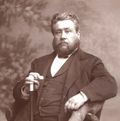All things come alike to all: there is one event to the righteous, and to the wicked; to the good and to the clean, and to the unclean; to him that sacrificeth, and to him that sacrificeth not: as is the good, so is the sinner; and he that sweareth, as he that feareth an oath.(Eclesiastés 9:2)
This is an evil among all things that are done under the sun, that there is one event unto all: yea, also the heart of the sons of men is full of evil, and madness is in their heart while they live, and after that they go to the dead.(Eclesiastés 9:3)
For to him that is joined to all the living there is hope: for a living dog is better than a dead lion.(Eclesiastés 9:4)
For the living know that they shall die: but the dead know not any thing, neither have they any more a reward; for the memory of them is forgotten.
Also their love, and their hatred, and their envy, is now perished; neither have they any more a portion for ever in any thing that is done under the sun.(Eclesiastés 9:6)
Go thy way, eat thy bread with joy, and drink thy wine with a merry heart; for God now accepteth thy works.(Eclesiastés 9:7)
Let thy garments be always white; and let thy head lack no ointment.(Eclesiastés 9:8)
Otras publicaciones relacionadas con "Eclesiastés 9:5":
Eclesiastés 9:5 - Referencia Cruzada
And as it is appointed unto men once to die, but after this the judgment: (Hebreos 9:27)
For in death there is no remembrance of thee: in the grave who shall give thee thanks? (Salmos 6:5)
There is no remembrance of former things; neither shall there be any remembrance of things that are to come with those that shall come after. (Eclesiastés 1:11)
The eye of him that hath seen me shall see me no more: thine eyes are upon me, and I am not. (Job 7:8)
Wilt thou shew wonders to the dead? shall the dead arise and praise thee? Selah. (Salmos 88:10)
And so I saw the wicked buried, who had come and gone from the place of the holy, and they were forgotten in the city where they had so done: this is also vanity. (Eclesiastés 8:10)
They are dead, they shall not live; they are deceased, they shall not rise: therefore hast thou visited and destroyed them, and made all their memory to perish. (Isaías 26:14)
His sons come to honour, and he knoweth it not; and they are brought low, but he perceiveth it not of them. (Job 14:21)
For I know that thou wilt bring me to death, and to the house appointed for all living. (Job 30:23)
Let them be before the LORD continually, that he may cut off the memory of them from the earth. (Salmos 109:15)
For there is no remembrance of the wise more than of the fool for ever; seeing that which now is in the days to come shall all be forgotten. And how dieth the wise man? as the fool. (Eclesiastés 2:16)
It is better to go to the house of mourning, than to go to the house of feasting: for that is the end of all men; and the living will lay it to his heart. (Eclesiastés 7:2)
Doubtless thou art our father, though Abraham be ignorant of us, and Israel acknowledge us not: thou, O LORD, art our father, our redeemer; thy name is from everlasting. (Isaías 63:16)

